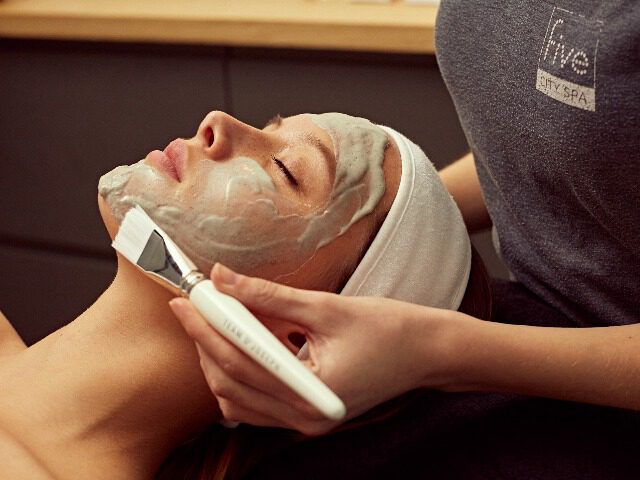Glutathione for Skin Repair and Regeneration

Glutathione, often referred to as the “master antioxidant,” is a naturally occurring compound found in every cell of the human body. It plays a crucial role in various bodily functions, but its benefits for skin repair and regeneration are particularly remarkable. This powerful antioxidant is composed of three amino acids: cysteine, glutamine, and glycine. It works tirelessly to protect cells from oxidative stress, detoxify harmful substances, and maintain overall cellular health. In this blog post, we’ll explore how glutathione contributes to skin repair and regeneration, and why it has become a popular topic in the realm of skincare.
Understanding Glutathione’s Role in the Body
Before diving into the specifics of how glutathione benefits the skin, it’s essential to understand its overall role in the body. Glutathione is involved in a wide range of critical processes, including DNA synthesis and repair, protein synthesis, and enzyme activation. However, its most notable function is its ability to neutralize free radicals—unstable molecules that can damage cells and contribute to aging and disease.
Free radicals are generated by various factors, such as exposure to UV radiation, pollution, and toxins, as well as by natural metabolic processes. When the body is exposed to an excess of free radicals, oxidative stress occurs, leading to cellular damage and contributing to a range of health issues, including premature aging and skin problems. Glutathione helps mitigate these effects by neutralizing free radicals and supporting the body’s natural detoxification processes.
Glutathione and Skin Health
The skin is the body’s largest organ and serves as the first line of defense against environmental stressors. As such, it is constantly exposed to factors that can cause damage, including UV radiation, pollution, and toxins. These factors can lead to oxidative stress, resulting in the breakdown of collagen and elastin, the proteins responsible for maintaining skin’s structure and elasticity. Over time, this damage can manifest as wrinkles, fine lines, hyperpigmentation, and other signs of aging.
Glutathione plays a vital role in protecting the skin from oxidative stress and promoting its repair and regeneration. Here are some of the key ways in which glutathione benefits the skin:
1. Antioxidant Protection
Glutathione’s primary function is to act as an antioxidant, neutralizing free radicals before they can cause cellular damage. By reducing oxidative stress, glutathione helps prevent the breakdown of collagen and elastin, which are essential for maintaining the skin’s firmness and elasticity. This protection not only helps prevent the visible signs of aging but also supports the skin’s overall health and resilience.
2. Skin Brightening and Even Tone
One of the most well-known benefits of glutathione for the skin is its ability to promote a brighter, more even complexion. Glutathione inhibits the production of melanin, the pigment responsible for dark spots and uneven skin tone. By reducing melanin production, glutathione can help lighten hyperpigmentation, sunspots, and other forms of discoloration, leading to a more radiant and uniform complexion.
3. Support for Detoxification
The skin is exposed to a wide range of environmental toxins daily, from pollutants in the air to chemicals in skincare products. These toxins can accumulate in the skin, leading to inflammation, breakouts, and other issues. Glutathione plays a key role in the body’s detoxification processes by binding to these harmful substances and facilitating their removal from the body. This detoxification support helps keep the skin clear and free from impurities, reducing the likelihood of blemishes and other skin problems.
4. Anti-Inflammatory Properties
Inflammation is a common underlying factor in many skin conditions, including acne, eczema, and rosacea. Glutathione has powerful anti-inflammatory properties that can help calm irritated skin and reduce redness and swelling. By modulating the body’s inflammatory response, glutathione can help alleviate the symptoms of inflammatory skin conditions and promote a clearer, calmer complexion.
5. Promotion of Skin Repair and Regeneration
Glutathione is not only protective but also plays an active role in skin repair and regeneration. It supports the synthesis and repair of DNA and proteins, which are essential for the maintenance and renewal of healthy skin cells. This regenerative ability is particularly important for aging skin, which may experience slower cell turnover and repair processes. By enhancing these processes, glutathione can help the skin recover from damage more efficiently, leading to a smoother, more youthful appearance.

How to Support Glutathione Levels for Skin Health
Given the many benefits of glutathione for skin repair and regeneration, it’s natural to wonder how to support the body’s glutathione levels. While the body naturally produces glutathione, various factors can deplete its levels, including aging, poor diet, chronic stress, and exposure to environmental toxins. Fortunately, there are several ways to support glutathione levels and enhance its benefits for the skin:
1. Dietary Choices
Certain foods are rich in the precursors needed for glutathione production, particularly sulfur-containing foods. These include garlic, onions, cruciferous vegetables (such as broccoli, cauliflower, and Brussels sprouts), and lean proteins. Incorporating these foods into your diet can help support the body’s natural glutathione production. Visit their page where you will find lots of great information and practical advice about choosing the best glutathione supplements.
2. Lifestyle Factors
Maintaining a healthy lifestyle is also important for supporting glutathione levels. Regular exercise, adequate sleep, and stress management techniques can all contribute to optimal glutathione production. Additionally, minimizing exposure to toxins—such as avoiding smoking and limiting alcohol consumption—can help preserve glutathione levels.
3. Topical Skincare
In addition to supporting glutathione production internally, it can also be beneficial to use topical skincare products that contain glutathione. These products can help deliver glutathione directly to the skin, where it can exert its protective and regenerative effects. Look for serums, creams, or masks that feature glutathione as a key ingredient to incorporate into your skincare routine.
Conclusion
Glutathione is a powerful ally in the quest for healthy, youthful skin. Its antioxidant, anti-inflammatory, and detoxifying properties make it an essential component of the body’s defense against environmental stressors and aging. By supporting glutathione levels through diet, lifestyle choices, and skincare, you can help protect your skin from damage, promote its repair and regeneration, and achieve a brighter, more even complexion.
As more people become aware of glutathione’s benefits for skin health, it continues to gain popularity as a key ingredient in skincare routines. Whether you’re looking to prevent the signs of aging, reduce hyperpigmentation, or simply maintain healthy, resilient skin, glutathione offers a wide range of benefits that make it well worth considering.





